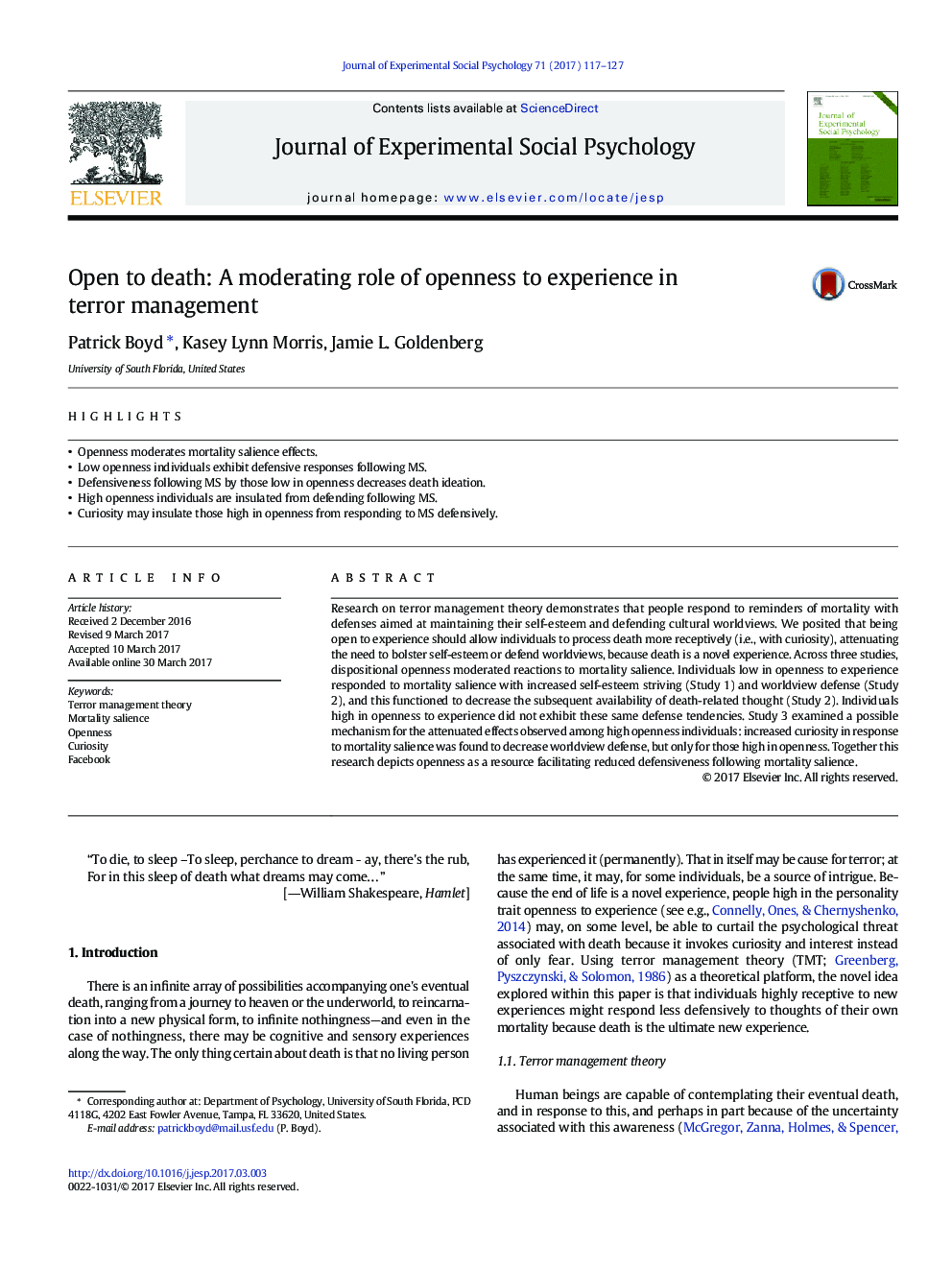| Article ID | Journal | Published Year | Pages | File Type |
|---|---|---|---|---|
| 5045615 | Journal of Experimental Social Psychology | 2017 | 11 Pages |
â¢Openness moderates mortality salience effects.â¢Low openness individuals exhibit defensive responses following MS.â¢Defensiveness following MS by those low in openness decreases death ideation.â¢High openness individuals are insulated from defending following MS.â¢Curiosity may insulate those high in openness from responding to MS defensively.
Research on terror management theory demonstrates that people respond to reminders of mortality with defenses aimed at maintaining their self-esteem and defending cultural worldviews. We posited that being open to experience should allow individuals to process death more receptively (i.e., with curiosity), attenuating the need to bolster self-esteem or defend worldviews, because death is a novel experience. Across three studies, dispositional openness moderated reactions to mortality salience. Individuals low in openness to experience responded to mortality salience with increased self-esteem striving (Study 1) and worldview defense (Study 2), and this functioned to decrease the subsequent availability of death-related thought (Study 2). Individuals high in openness to experience did not exhibit these same defense tendencies. Study 3 examined a possible mechanism for the attenuated effects observed among high openness individuals: increased curiosity in response to mortality salience was found to decrease worldview defense, but only for those high in openness. Together this research depicts openness as a resource facilitating reduced defensiveness following mortality salience.
